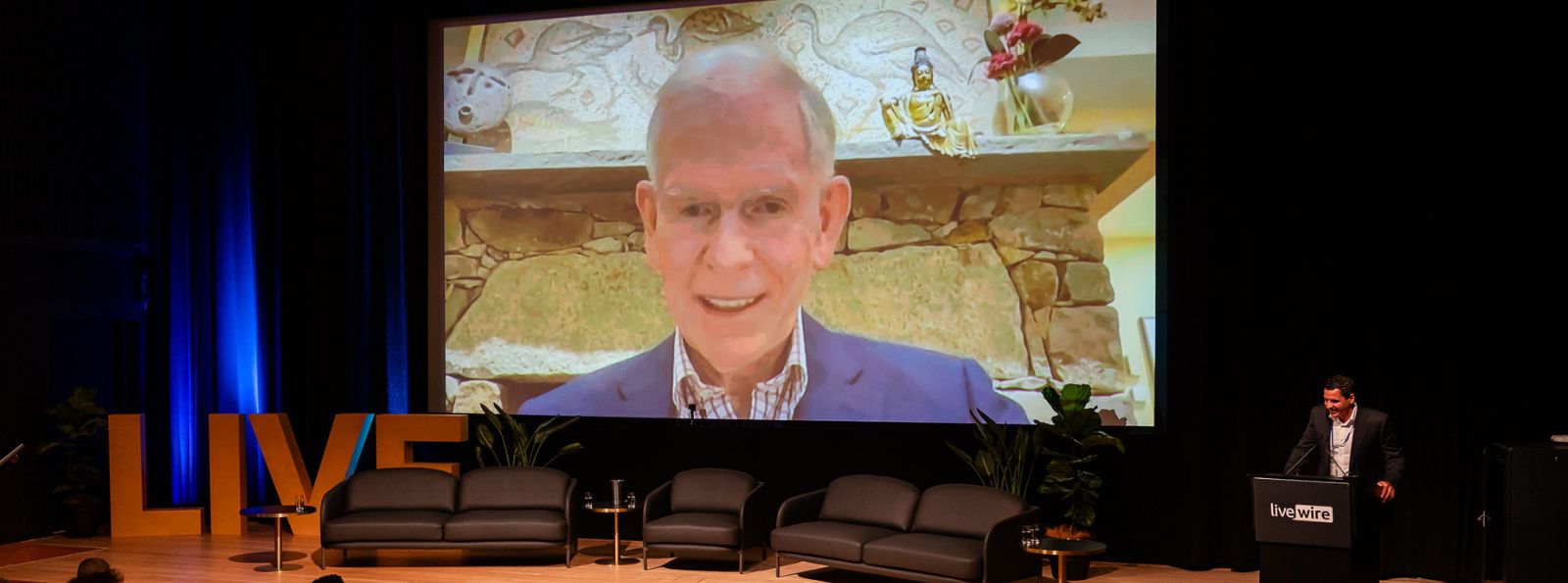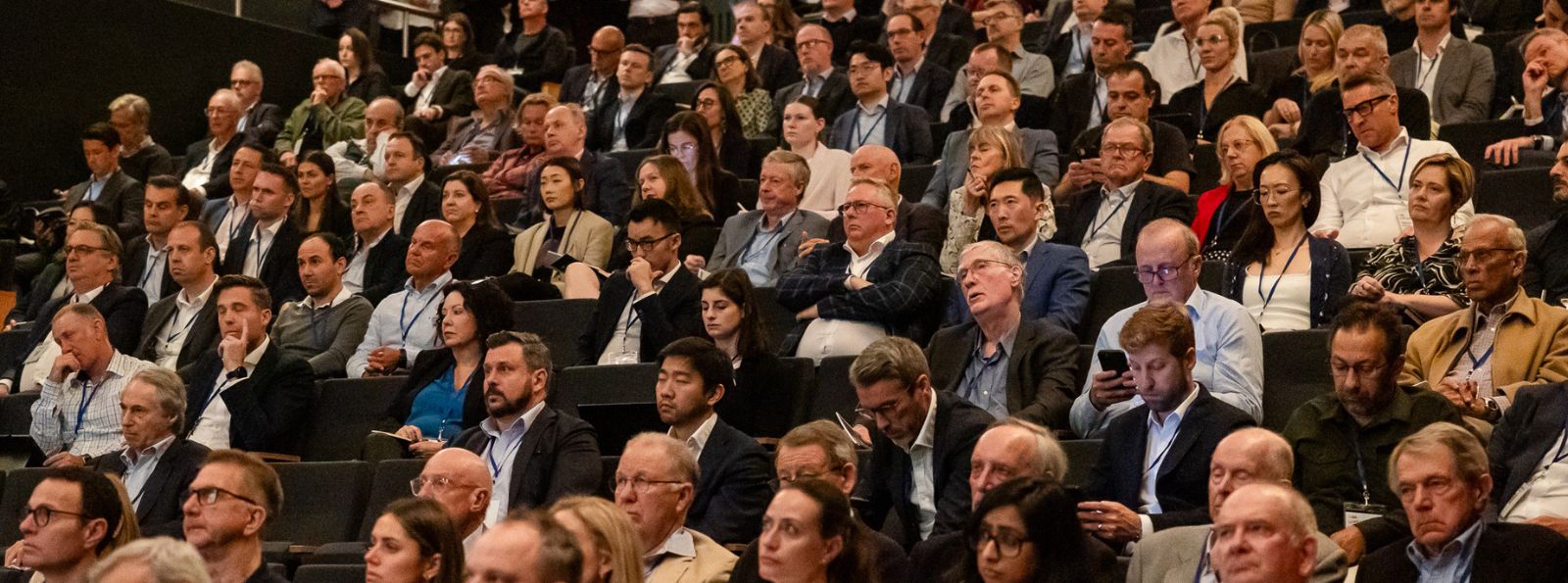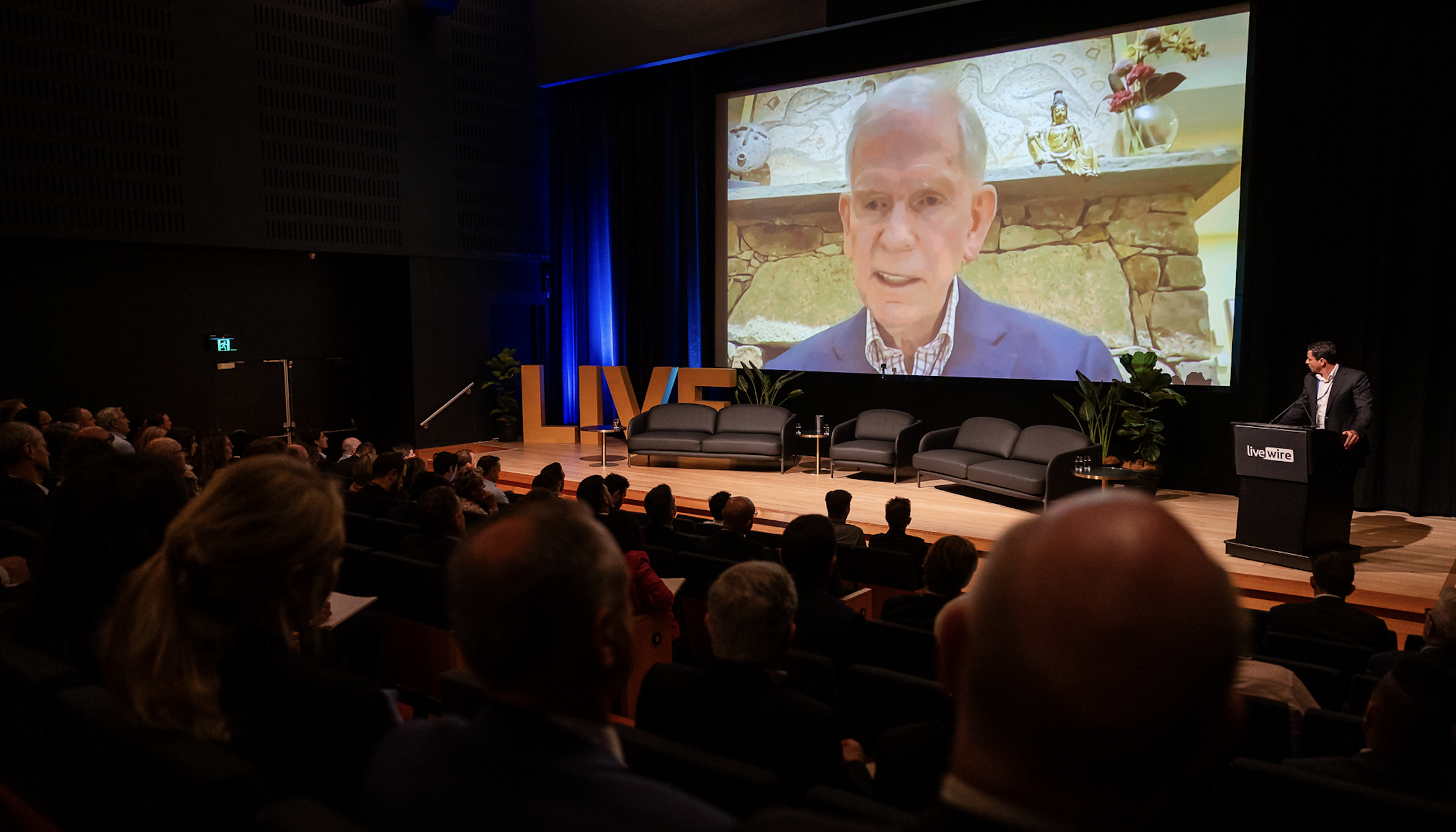There’s less than a 50% chance the world can avoid a social, economic, environmental and financial crisis
Speaking to an audience of around 400 investors at Livewire Live 2023, Grantham argued the financial and economic systems, as well as the US Federal Reserve, have long underestimated the probability of recession - pointing to past bubbles and subsequent busts as proof.
He also argued that modern civilisation, as we know it, could very well cease to exist if we lose the battle against a myriad of long-term global problems. In fact, he believes there is less than a 50% chance of the world coming through these challenges intact.
"I think that it is eroding at the edges already and will continue to erode. And even if we do better, we will go through periods of substantially more pain than we have had [ever before]," he told investors.
With this in mind, he believes investors should be underweight the US - particularly US equities, and recommended investors be "very careful with real estate all over the world".
"The last 20 years of declining mortgage rates have driven real estate to really crushing high multiples of family income - so high, that young people can't [afford to] buy a house," he said.
"That applies every bit as much in the US, Canada, UK, Australia, New Zealand, China and most of Europe."
In this wire, I'll summarise some of the key learnings from Grantham's exclusive interview with Livewire - including the key to a healthy society, why he believes investors should focus on quality stocks, as well as how scarce resources necessary for the transition to a greener future continue to be attractive long-term investment opportunities from here.
.jpg)
Investors should avoid the US and real estate
While 75% of the Grantham Foundation's capital is currently invested in green venture capital, the rest of the foundation's funds are invested in liquid assets that are "short the market".
"I would concentrate on non-US stocks. If I had to buy US stocks, and most people do, I would concentrate on quality," he said.
Quality protects investors to a "considerable degree" from the worsening economic outlook, he argued.
"Top quality stocks should yield a point less just like AAA bonds yield a point less, but they do not. In real life, for the last 100 years, 50 years or 10 years, quality stocks have yielded an extra half a point," he explained.
"It's the major inefficiency that you should take advantage of. So if you have to buy US, make sure you buy quality."
Meanwhile, with real estate prices soaring over the last few decades, Grantham also notes he "wouldn't touch real estate."
The wealth pendulum has swung too far
Back in 1998, homes were selling at far smaller multiples of the average family's income, Grantham noted. Take London, for example, where homes were selling at 3.5 times the average family's income - today, it's 10 or 12 times.
Similarly, it was around three times in the US and Australia. Today, it's five or six times in the US and at least double digits in Australia.
"At 10 times the family income, how does the average person buy a new house? Inequality, I think, is the poison in the capitalist system these days," Grantham said.
"Inequality has increased in every developed country, certainly in the UK, Australia and Canada - but massively in the US. The US is now as unequal as Mexico and Brazil, which is to say very, very unequal."
The key to a healthy society is moving income inequality in the right direction - through taxes, stronger unions, and perhaps - far smaller pay cheques for the world's top 1%.
"The pendulum has swung a long, long way... There are times when you need to shock the system and make it more capitalistic. There are times when you need to move it back a bit. We have come too far at the time being," Grantham said.
In fact, when Grantham arrived in the US in the 1960s, the average Fortune 500 CEO earned 40 times the average worker. In Japan, it was the same.
"Today, in Japan, it's about the same - 40 or 45 times. In America, it's 300 times," he said.
"What is the point of that? What do you do with all that dough? And I've made a lot of dough. I have given [away] 95% of it to our foundation and we are doing something useful, certainly something very exciting."
.jpg)
Areas of opportunity
It's no surprise, given Grantham's green venture capital foundation and his well-known views on climate change, that the investment strategist believes climate-related investments will dominate portfolios for the rest of our lives.
"It doesn't mean there won't be financial problems. It doesn't mean there won't be bubbles," he remarked.
"There has been at least one already and there will probably be a couple more. Any industry that is dominant and growing has bubbles and problems. But it will be the sector of the economy that drives more growth than anything else."
That said, there are not enough critical minerals in the world to "green" the global economy, he added, noting that the only two liquid securities he owns are small positions in climate change-related resources.
"We don't have enough lithium, cobalt, nickel, or copper - these are all scarce resources," Grantham said.
"We live in a world now of fairly regular shortages - we call it whack-a-mole in America... We are not going to be rolling in commodities ever again. That era has gone."
Mining and processing these resources is going to be more expensive than it has ever been, and it will also be slightly inflationary and depressing on growth rates compared to "the good old days", he said.
Grantham believes lithium, despite the volatility and unpredictability of owning commodities, will likely be an attractive long-term investment - as would owning a "broad swathe of metals".
"There will be an intermittent shortage as far as the eye can see. And I have invested in extracting more lithium from brine and extracting more lithium from rock in Australia," he said.
"The alternative, to own a broad swathe of metals, would also be attractive - I would do both."

5 topics
1 contributor mentioned


